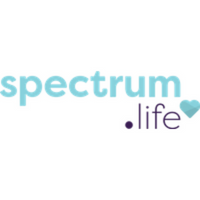6 ways to ensure reward strategy has multi-generational appeal
Organisations face difficulty meeting the varied requirements and expectations of employees across the several generations that make up the modern workforce.
A one-size-fits-all approach is no longer adequate, as tech-savvy Generation Z and the seasoned workers heading into retirement both demand different approaches. Companies must adapt their reward programmes to suit employees at all career stages if they hope to promote engagement and retention overall.
1. Adaptable benefit plans
It’s critical to acknowledge the distinct demands of various generations. While individuals approaching retirement may prioritise financial stability, Gen Z may place more importance on flexibility and work-life balance.
Perceived value of rewards can be increased by providing customisable benefit packages that are flexible enough to accommodate their preferences. Flexibility is crucial for many lifestyle stages from young families and employees balancing work and personal responsibilities, to those navigating the world of work with a disability and those experiencing menopausal symptoms.
2. Opportunities for development
Every age group of employees benefits from investments in education and training. While older employees may want opportunities to coach or move into advisory roles, Gen Z is more interested in professional progression and learning new skills.
Including professional development in the compensation plan might show that employers care about each employee’s personal development and help retain top talent. Employees may be more productive and motivated with a clear career path ahead of them.
3. Wellbeing initiatives for all ages
A comprehensive approach to wellness is essential, encompassing programmes that address age-related health concerns for older personnel as well as stress management for the younger generation.
Concerns about physical and mental health are common. The implementation of wellness programmes that cater to the specific health needs of various age groups can lead to a healthier and more effective workforce. A holistic approach to health and wellbeing is key to success.
4. Acknowledgment and gratitude
One of the best ways to motivate staff members is to acknowledge and value their accomplishments. Making recognition programmes age and generationally appropriate guarantees everyone feels appreciated. Although Gen Z workers might value digital badges and public recognition, senior staff members might prefer more conventional forms of appreciation, including prizes or handwritten notes.
5. Integration of technology
Gen Z wants smooth, technologically advanced experiences because they grew up in the digital era. The entire employee experience can be improved by incorporating technology into the reward systems, such as mobile-friendly platforms for benefits administration. In addition, accessibility and assistance for senior staff who are less tech-savvy are essential for inclusion. Ensure no one is left behind and that your organisation provides ongoing training and development support.
6. Consistent feedback loops
Ensure your organisation is on top of the changing needs and desires of employees. Workforce demographics are changing constantly, your organisational needs could be the complete opposite of what they were five years ago, so ensure to regularly evaluate what is provided to employees. Surveys, focus groups and one-on-one conversations provide insightful information that can be used to modify the overall plan and keep it in line with the evolving demands of workers from various generations.
Multigenerational workforces are the norm, with people living and working longer and later in life. Organisations may create a work environment that supports and honours people at every stage of their careers by encouraging diversity, adaptability and a dedication to growth.
By doing this, companies not only raise employee happiness but establish themselves as the employer of choice in a competitive labour market, helping to both retain and attract top talent.
Supplied by REBA Associate Member, Spectrum Life
Supporting 4m+ lives in the corporate, education and insurance sectors with our health & wellbeing solutions.”








